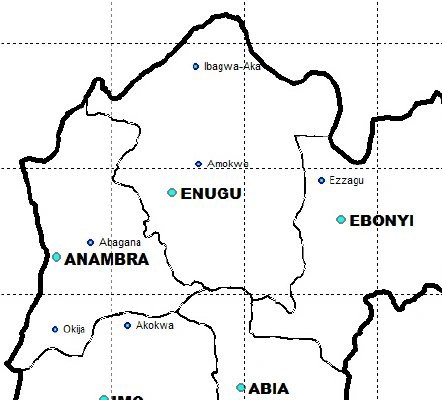Featured
Okukim Adiaha Owo: First Daughters’ Sacrificial Custom in Asutan Clan

By Dr Uwem Akpan
In his landmark work entitled “Primitive Culture”, Edward Tylor states that “culture or civilisation, taken in its wide ethnographic sense, is that complex whole which includes knowledge, beliefs, arts, morals, law, customs, and any other capabilities and habits acquired by man as a member of society”.
A document entitled, “Cultural Policy for Nigeria”, issued in 1988, views culture as “the totality of the way of life evolved by a people in their attempts to meet the challenges of living in their environment, which gives order and meaning to their social, political, economic, aesthetic, religious norms and modes of organisation, thus, distinguishing a people from their neighbours”.
The document further posits that culture comprises material, institutional, philosophical and creative aspects. The material aspect has to do with artifacts, the institutional deals with the political, social, legal, and economic structures erected to achieve material and spiritual objectives; while the philosophical concerned with ideas, beliefs and values; the creative concerns a people’s literature, visual, performing arts, etc. From the above construct, custom can be categorised as a fragment of philosophical culture.
The Ibibio Cosmology
The Ibibio believe that there is a Supreme Being (Abasi) who created all things including the “ndem” (deities) to whom he gave charge of the different aspects of human affairs. There are family, village, and clan “ndem” (deities). In Asutan clan, there are two major deities for the two blocs, namely: Akpan Edu Ndikpo, which domiciles in Ikot Oku Akpan and Otukidem Iwawa, which domiciles in Ikot Nko. There are also “ndem isong” (fertility goddess), to look after land fertility, “ndem urua” (market deity), to protect the interest of those who buy and sell in the market, etc.
The Ibibio cosmology also postulates that below the gods are unincarnated spirits such as “eka abasi” (the spirit mother who looks after children), among other beliefs. Sacrifices are therefore directed to these invisible beings.
There are many types of sacrifices such as the annual sacrifice which relates to cultivation and harvest, etc., as well as sacrifices at periodic phases of the life cycle (such as naming ceremony, puberty, marriage, and death). Other categories of sacrifice include initiation/installation, offences, etc.
The Significance of Religious Sacrifice
Sacrifice is viewed as a means of communication with the invisible beings, thus, in every sacrifice, the Ibibio carefully selects the place and time for it. In fact, the idea of sacrifice as a means of contact with the invisible world is obviously demonstrated in the descent of vulture on the sacrificial arena, an indication of the acceptance of the transaction. It is believed that the process of communication in all rituals is symbolic and the aim is to pay homage, return thanks and request for more favour.
The Ibibio sacrifice to both benevolent and evil spirits depending on the circumstance. Sacrifice to benevolent spirits is geared toward expressing friendship ties and communion, while that of the evil spirit is meant to fence the spirit from man. In fact, the intentions are also expressed in the symbolism of the materials offered and in the ritual action.
The significance of offering food items in sacrifice should be properly viewed from the perspective or the socio-economic life of the Ibibio who are primarily farmers and for whom animals and food items are commonly exchanged and valued as gifts among friends and neighbours. In the process of sacrifice, the offering of food items and animals expresses friendship with the invisible beings venerated.
The Okukim Adiaha Owo – First Daughters’ Sacrificial Custom in Asutan Clan
Customs and beliefs constitute the cultural bedrock among the Ibibio in general and the Asutan people in particular. There were many and varied customs and beliefs in the olden days. Although modernity has overwhelmed most of them, one custom prevails across all the 38 Asutan villages and can be correctly regarded as “an uncompromised custom”. It is the sacrifice during a phase of the first daughters’ life cycle – in this case, marriage. This custom is known as “ukim okukim Adiaha owo”.
No Asutan man, whether poor, rich, strong or weak, young or old, whether he domiciles at home or in the diaspora, can ever give the first daughter in marriage without the observation of this “first line charge” ritual. The required traditional items include an “okukim erong” (a ram), a goat, five tubers of yam, assorted drinks, etc.
A day is set aside for ceremony, where the members of the community would gather. The daughter and the husband (to be) would publicly present the ram to the father and clearly proclaim that it is a ram presented to the father to traditionally mark the marriage of the first daughter. The father would then receive it and make a public response before handing over the animal to the family head. In Ikot Nkim, one of the Iwawa villages, the man that was the last person that the son-in-law presented the ram to him, would preside over the slaughtering called “ukim okukim”. In some other Asutan communities, it is the family head or a designated elder that handles the task.
The male members of the family would then gather and the person saddled with the responsibility would take a sharp knife and will ask the family members “nkim” (should I pierce?), they would respond “iyoo” (no), he repeats the question for six consecutive times. On seventh time, everybody present would chorus “eii” (yes), he will then pierce the animal in the ribs and it bleeds and dies.
Throughout the entire exercise, the ram would not bleat, since it is being slaughtered by men. If any woman were to touch the ram, the animal would pose a fierce resistance. This is in line with an Ibibio saying that “okukim erong aboh ke ituaha oyot inoh nka” (meaning that a ram does not subject to any male who is regarded as a mate). Some specific parts of the meat would be shared to some designated persons, the intestines used to cook the yam.
A goat known as “ebot ndito ete” is given to the members of the family, who would slaughter it, cook same and eat together. This goat meat is prepared separately, hence the saying: “owo ibene mmong okukim iwak mme mmong ebot” (the ram pepper soup cannot be mixed with that of the goat). Usually this aspect of the ceremony is done first so that those that are not qualified to partake in the ram feast would eat the goat and leave. In some Asutan villages such as Ikot Abasi, a separate goat is given to the mother and is slaughtered at the backyard and administered by the women of the community.
Consequences for Refusal to Participate in the Custom
Any father that avoids the custom when his first daughter gets married, must be careful to avoid the ceremony all the days of his life. He is not even expected to be present wherever the ceremony is done. If he carelessly eats even a particle of the meal or sip the drink, he has endorsed his obituary. It has been stressed that any Asutan indigene, who had eaten the meat even once in his life as an unmarried person and later gives his first daughter in marriage without the observance of the custom remains a “walking corpse”.
The author was reliably informed that no Asutan man would ever give his “Adiaha” (first daughter) in marriage without fulfillment of this custom. In fact, an Asutan man can forgo anything, certainly not “Okukim Adiaha Owo”.
No one knows when the custom was instituted, however, the Asutan people proudly perpetuate this custom and do not condemn it. They regard it as part of their cultural heritage which they inherited from their forebears which they must transmit to the next generation. They proudly flaunt the custom as one that modernity has not been able to “swallow” and will not “swallow”. Informants unanimously state that the ceremony strengthens their bond of kinship. This is a case of “tradition lasting longer than city walls.”
For Diaspora Digital Media Updates click on Whatsapp, or Telegram. For eyewitness accounts/ reports/ articles, write to: citizenreports@diasporadigitalmedia.com. Follow us on X (Fomerly Twitter) or Facebook









